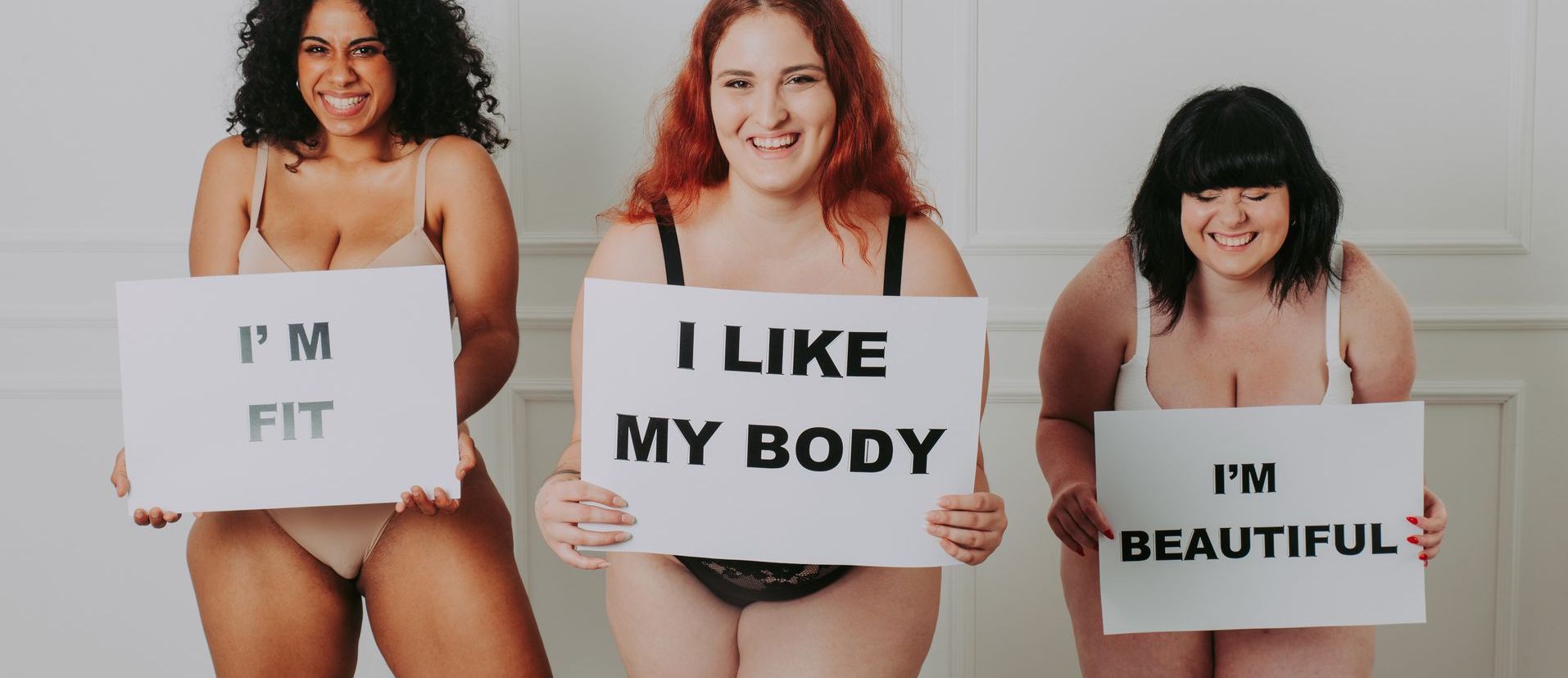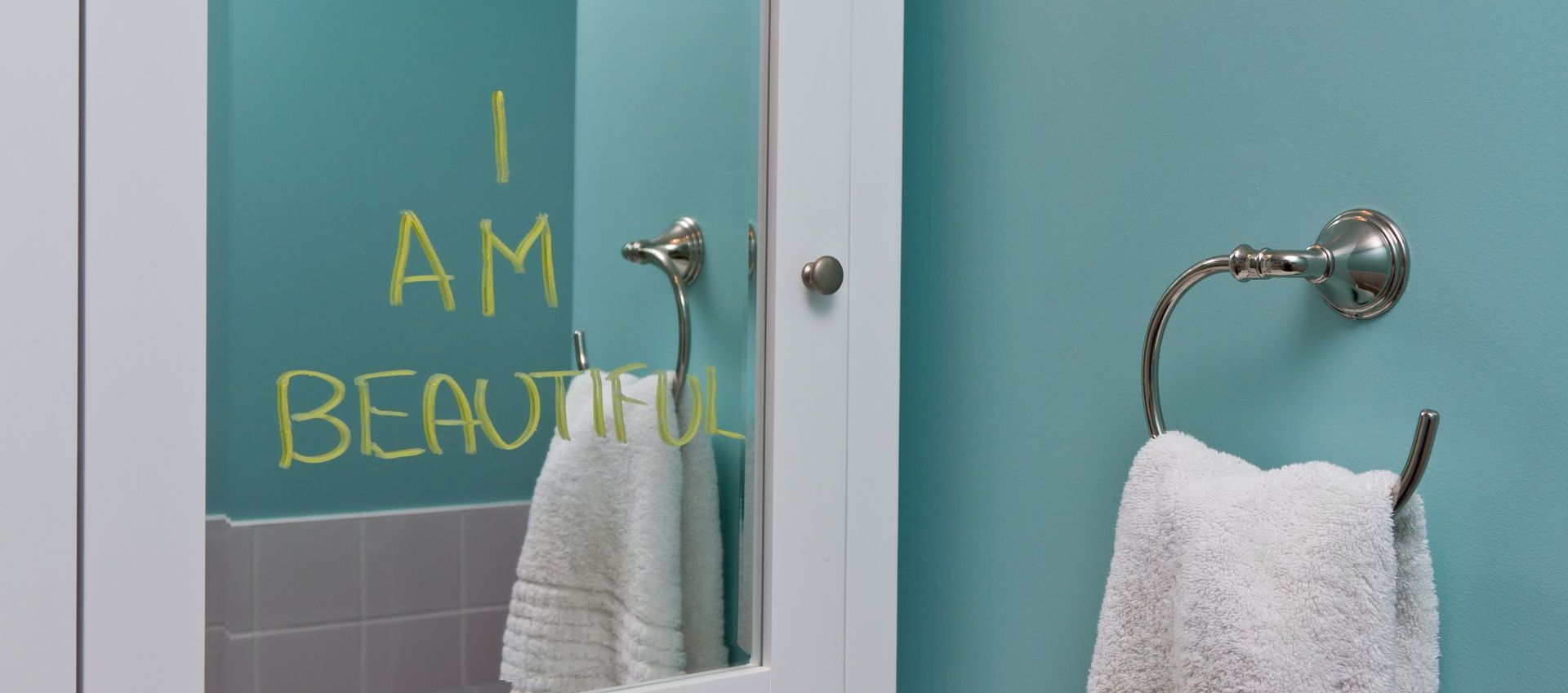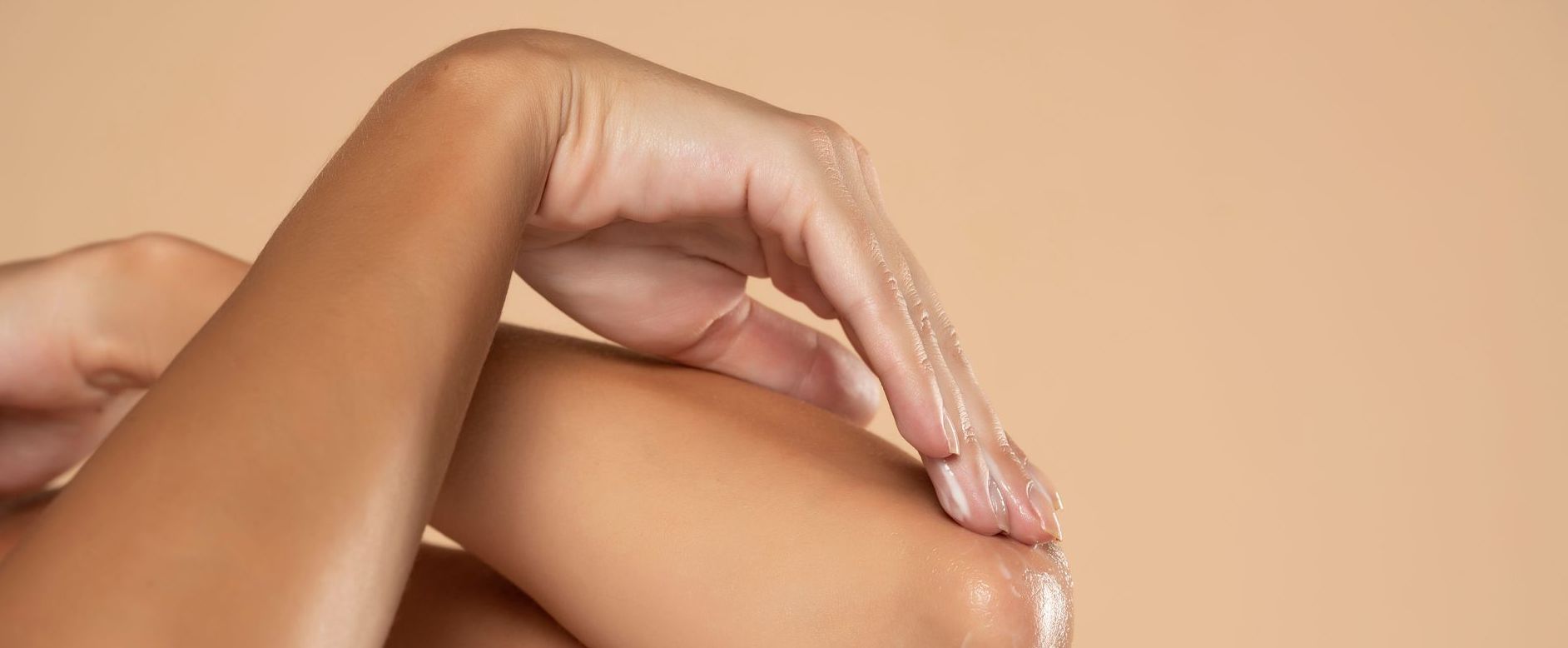If you’re one of the 11million+ adults in the UK alone whose body image has made them anxious, I see you. I hear you. I am you.
I vividly recall getting changed after swimming at school aged about 10 and realising that I was about 2 feet taller than everyone else and that I had the beginnings of breasts. As I dried myself, someone pointed at these mounds of flesh and everyone stopped and looked at me as if I’d grown another head before their eyes. And as I looked around at the picture perfect girls before me - small, perfectly formed, and nowhere near puberty - I thought how strange I must be to be different. Not good different then, but sad, bad, differently different. I think that was the day I consciously stopped innately, naturally, loving myself.
By rights, I should have been delighted about the burgeoning boobage. My first memory is running down the stairs on my 5th birthday crying to my Mum that they hadn’t come! I thought breasts grew overnight when you were 4 years and 364 days old.
These early memories set the scene for me to feel somewhat out of sorts with my body. Always bigger than everyone else, I have fought my beautiful body for decades. If anyone else had size 8 feet in the 1980s, I am sorry for the pathetically small range of Clarks school shoes you also had to choose from. Thankfully times have changed.
The fight I have with my body hasn’t developed as rapidly though. It has taken me decades to come to terms with my body: this amazing vessel that has borne 2 beautiful, perfect human beings, that hasn’t ever broken a bone, that survived physical traumas, that continues to function, regenerate, and breathe without my overactive mind telling it to do so. And it’s a work in constant progress and flux.

But self love isn’t about weight.
It’s about acceptance of who you are, from every mole to every molar. My daughter shared with me recently that I’d given her body confidence and shown her how to love herself, ( insert my “really?!” face!) plus what she got from me and how she wanted to be more like me. ( insert my “really?! through sobs” face!)
She told me something I hope will help you if you’re in a constant struggle with your body.
She said that I’m a role model for her because of who I am, not what I look like, and because I care so much, all she sees is love in me.
It reminded me of the Roald Dahl quote:
“If you have good thoughts they will shine out of your face like sunbeams and you will always look lovely.”
Aside from her wisdom, what has helped to accelerate the peace I am feeling with my body is to see that this is a complex situation. Like losing weight or gaining it, there are no quick fixes to feeling good about being ourselves. It’s a daily practice, like Gratitude or brushing our teeth. We have to normalise feeling good in the vessel we live in. And if you’re a survivor of any form of trauma, that can be doubly hard. Stored trauma sits in our bodies so we deserve even more to accept this body that has endured so much and keeps showing up, moving, working and offering us a chance to be here in the world. When we suffer from chronic stress, such as we do supporting our child through poor mental health, our body changes as it battles the rush of cortisol and adrenaline. Coming to terms with our body over time is a continuum. It’s not something that dropping a few kg ‘fixes’. In fact, it’s nothing to do with how our body changes.

It’s about acceptance of all we are now, as we are. We deserve to love ourselves and delaying it while we strive for different won’t make it happen.
Our body image is complex and made up of 4 points of view ( so no wonder we can’t simply ‘fix’ it!)
Perceptual body image: how we see our bodies
Affective body image: how we feel about our bodies
Cognitive body image: how we think about our bodies
Behavioural body image: the way we behave as a result of our perceptual, affective, and cognitive body image
When you have a positive body image, you can accept, appreciate, respect, and love your body.
It doesn't mean you’ll think you’ve got the perfect bod or avoid feeling any insecurities, but you will be able to acknowledge any insecurities for what they are and believe that your body is perfect for you. Your amazing body doesn’t care if you don’t suit skinny jeans or what number clothes you wear ( based on a range of arbitrary and outdated measurements that change from shop to shop.) Your body just wants to carry you along this through thing called life.
Body image is complex and so very personal, but here are some simple ways you can start to change how you see yourself or help your child to change how they see themselves:
- Focus on your positive qualities, skills, and talents - you’re amazing! Make a list of the things you can do - and that includes the things you think everyone can do (when they really can’t!)
- Avoid negative self-talk - talk to yourself like you would your child or your best friend. Just for a day. See the difference
- Say something positive to yourself every day - get a post it note and write a positive message on it. Stick it on the fridge or the front door or leave it in your purse. It works! I am strong. I am beautiful. I am enough as I am
- Or tell yourself you’re beautiful or handsome when you look in the mirror. Humour me, and give it a try. Be curious about what shifts it produces in you
- Focus on appreciating and respecting what your body can do - open your palm. Close your fingers. Open them. Close them. Wow! You can pick anything up, you can throw a ball, you can give a hug. Now walk, run, skip, dance if you can…your body moves beautifully whether it’s a little heavier than you’d like or svelte and slim, and either way it is AMAZING!
- Set positive, health-focused rather than weight focused goals - try to focus on being strong and healthy. Try and nurture yourself with good things. Treat your body as kindly as you would your best friend. Hydrate it, feed it, rest it - for no other reason than it feels good
- Avoid comparison-itis - there is only one of you, and you are not only unique but you are incredibly special. Recognise that. Forget everyone else. Forget what social media wants you to believe is ‘normal’ and ‘best’. Be unapologetically you. One day you will look back on every day spent wishing you were different as time you missed seeing your brilliance. You won’t get it back, so let’s stop that right here! And by recognising this disconnect, and trying to consciously love ourselves just a little more every day, we can begin to make peace with our bodies.

Today, for me, for you, for your child, look in the mirror and find something you love about yourself.
It might be slender ankles, beautiful hands, or a particularly expressive elbow. It doesn’t matter if it’s a small patch of soft skin, love and appreciate it like you’ve never loved and appreciated anything in your life before. And if you’ve ever been on one of those sales course where you have to sell a pen to a stranger who runs a stationery shop, use these skills to sell the beauty and benefits of that part of your body to yourself!
Those beautiful hands connect you to your family, they enable you to type online and connect with other people, and they make a great rest for your face when things get tough!
Recognise what you're brilliant at and recognise your uniqueness is where your beauty lies. See the non-physical goodness in your child too. Compliment them on their kindness, their ability to listen or to make you laugh. They need you to see the beauty you see in them in yourself. Modelling body positivity is needed now more than ever: according to the Mental Health Foundation, more than half of young people worry about how they look. And all we see is beauty.
So, let’s start to accept all we are, not all we perceive we’re not. It won’t be an overnight thing, but if we all commit to trying to love ourselves unreservedly, imagine what a revolution we can start in ourselves and then in our children.
I’m in. How about you?

